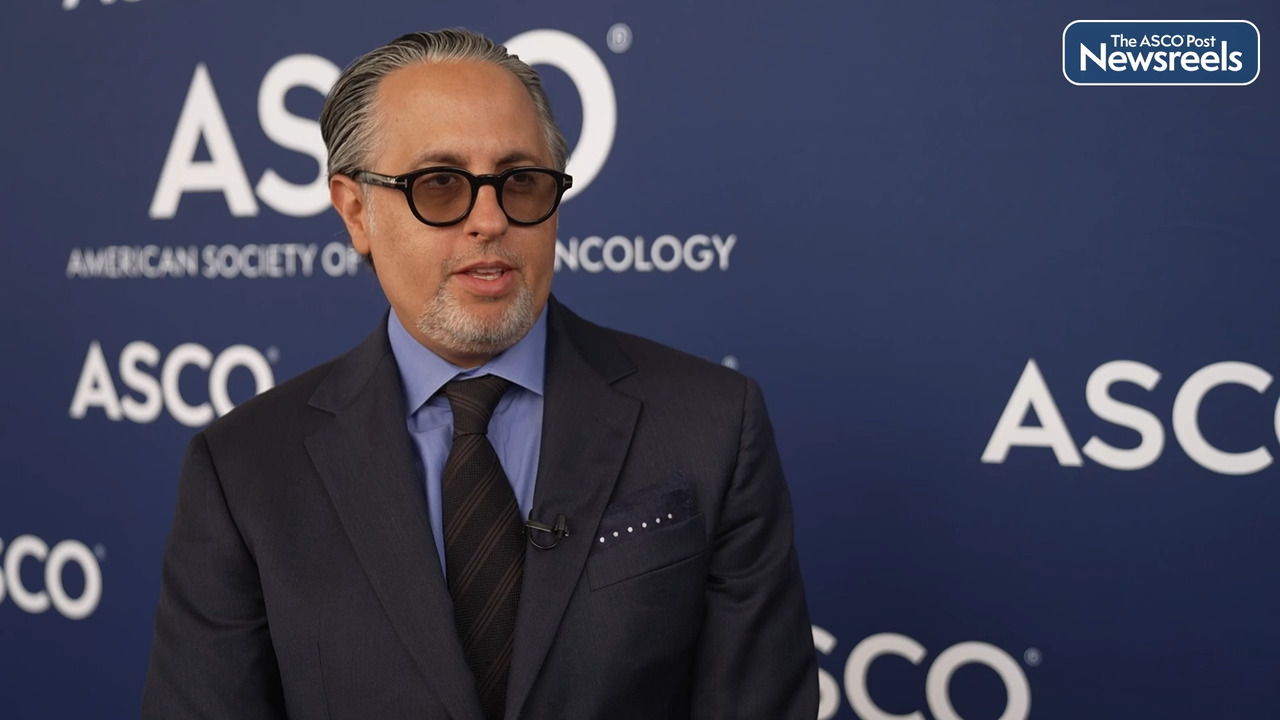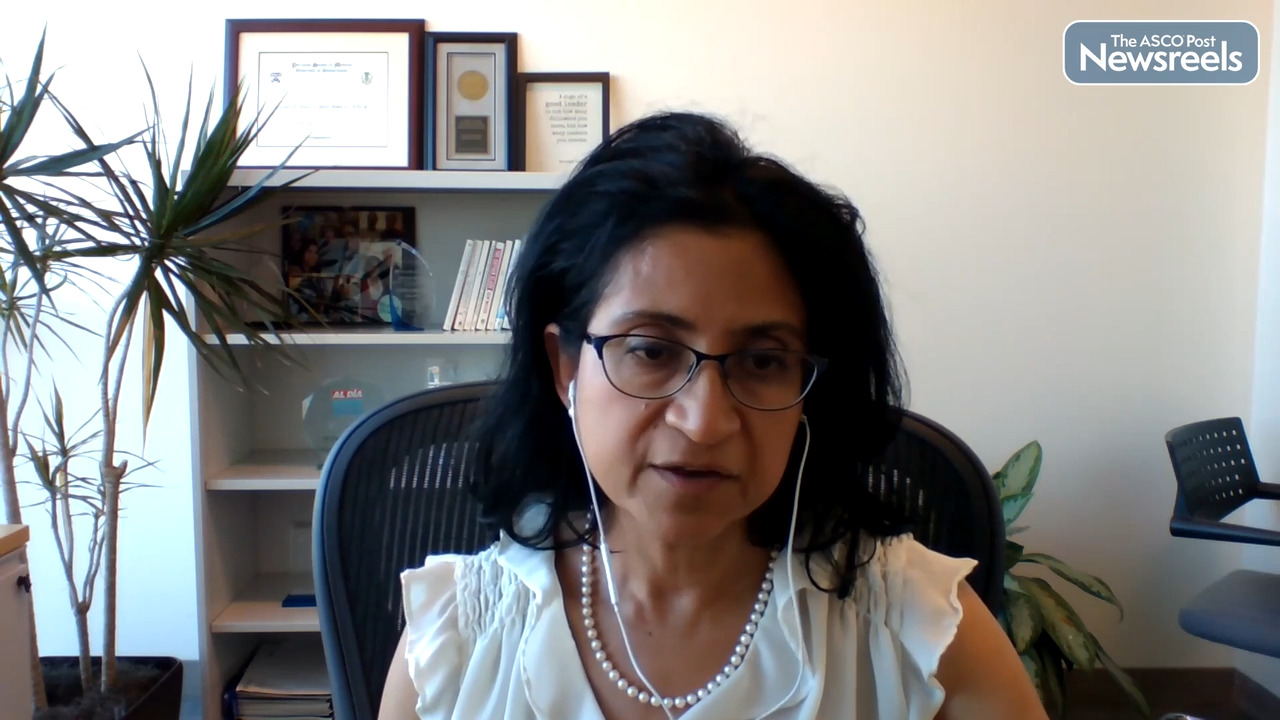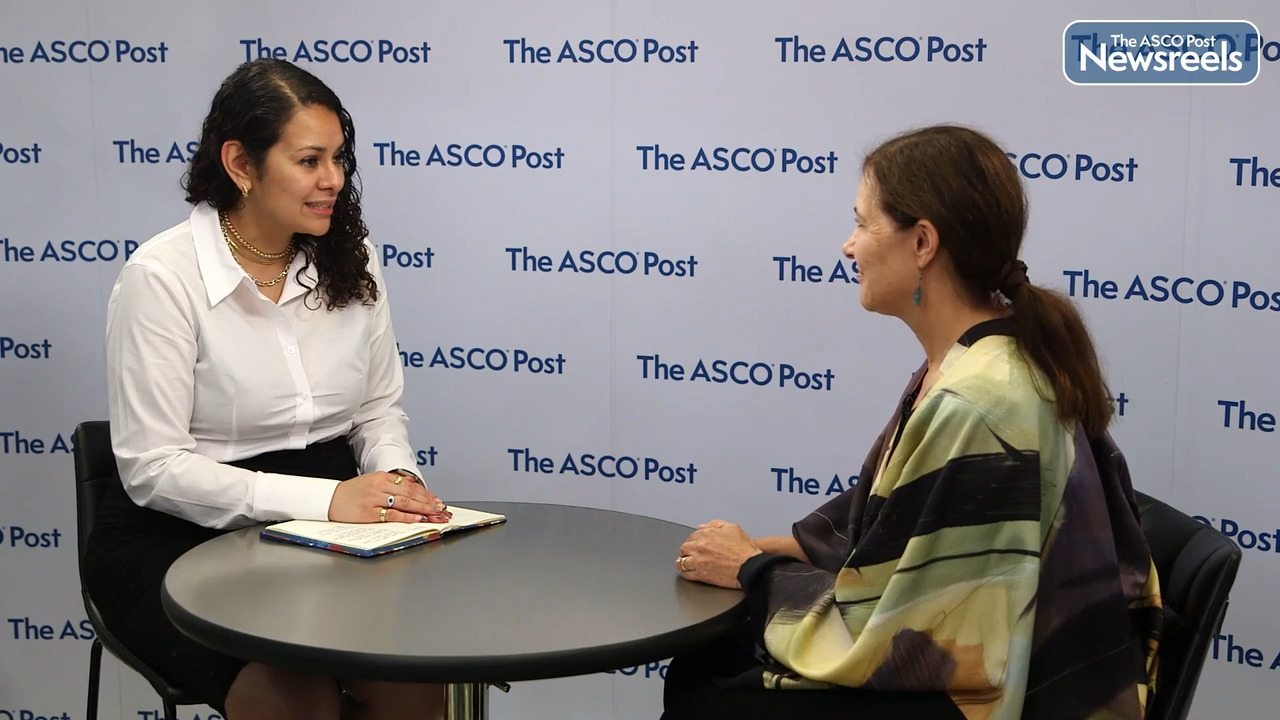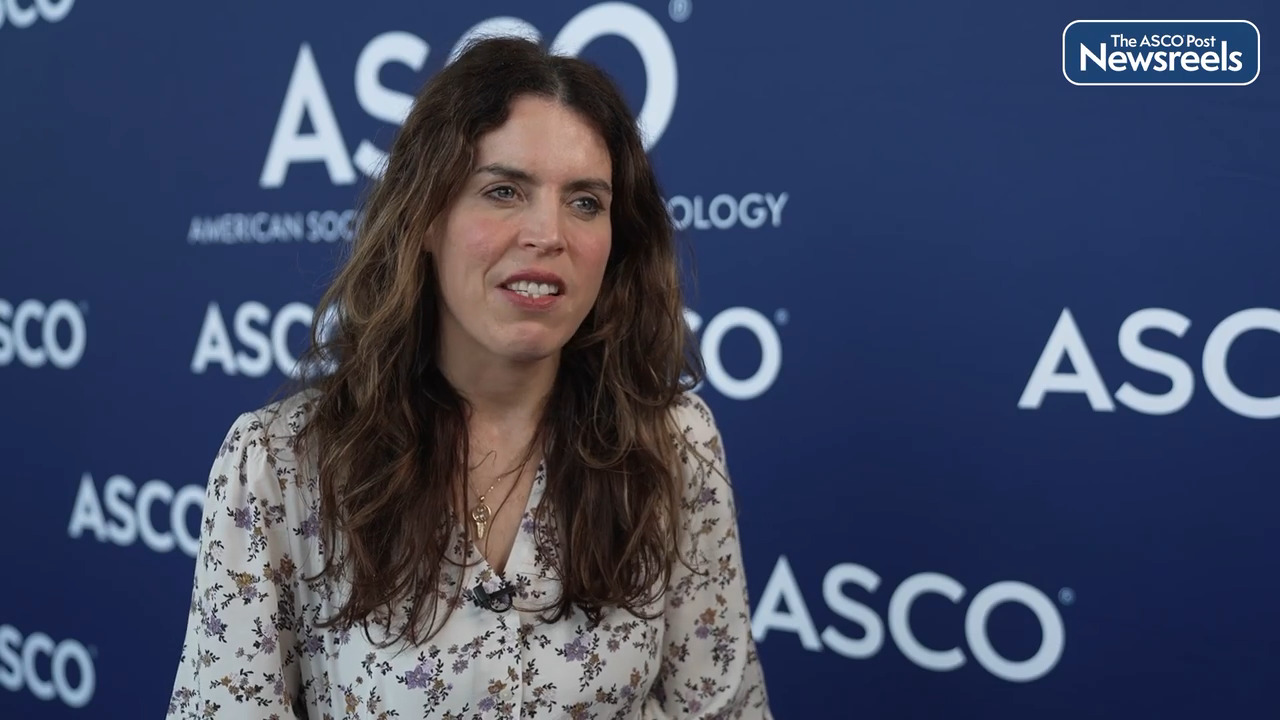Transcript
Disclaimer: This video transcript has not been proofread or edited and may contain errors.
Cathy Eng, MD:
Can you please tell the audience a little bit about the NeoCol study and what was the study design and what was your motivation for creating such a unique trial?
Lars Henrik Jensen, MD, PhD:
The motivation is mainly based on the patient's needs. So I work with the patients who have colon cancer and I see their needs, especially patients with the locally advanced disease, their risk of relapse and of dying of the disease. So that's the main purpose of making this trial. Furthermore, we have made a phase two trial testing new adjuvant chemotherapy in this patient group with excellent results. And that's the two main reasons for making this phase three randomized trial.
Cathy Eng, MD:
Super. Tell me a little bit more about the study design. What was the patient population?
Lars Henrik Jensen, MD, PhD:
The patient population is based on patients with colon cancer and the locally advanced disease. We define that as category T4 or T3 with an extension beyond the muscularis propria of at least five millimeters and no further spread or no sign of metastatic disease.
Cathy Eng, MD:
And how were those patients... Let's say they had potential obstruction, I presume everybody had a colonoscopy that was cleared by their medical team before considering participation in this clinical trial?
Lars Henrik Jensen, MD, PhD:
Yes. So if they had signs of obstruction, they could not be included.
Cathy Eng, MD:
And tell me a little bit more about how do you determine their T3 and T4 with a CT scan? That that's quite challenging.
Lars Henrik Jensen, MD, PhD:
It is. It is. And I think for T4 there are certain signs that...
Cathy Eng, MD:
Pretty obvious.
Lars Henrik Jensen, MD, PhD:
Obvious. Yeah. And furthermore, if you focus on the extension of the tumor beyond the muscularis propria, I think that's the main thing to focus on in order to differentiate between the smaller stage tumors and the locally advanced. But we know that it's not perfect. So, future trials and examinations should focus on a better way to select these patients.
Cathy Eng, MD:
Now were N2 patients eligible or ineligible?
Lars Henrik Jensen, MD, PhD:
Tumor stage is difficult, but the node stage is impossible on CT scan. So never ever pay attention to the node stage from a CT scan.
Cathy Eng, MD:
Okay. Just wanted to clarify that for the audience. So patients received, if I'm correct, three cycles of CAPOX?
Lars Henrik Jensen, MD, PhD:
Yes.
Cathy Eng, MD:
And that was your preference if I'm correct, for this clinical trial?
Lars Henrik Jensen, MD, PhD:
Yes. At the time of design of the study, one the countries included in the study, they used mostly FOLFOX. That's why we included it as an option. But it turned out that every patient receives CAPOX. So that's quite a uniform treatment they received. Yes.
Cathy Eng, MD:
And then tell me, so your primary endpoint was disease-free survival, if I'm correct.
Lars Henrik Jensen, MD, PhD:
Yeah.
Cathy Eng, MD:
And so what were your findings from your... the NeoCol trial in regards to primary endpoint as well as the secondary endpoints?
Lars Henrik Jensen, MD, PhD:
First, let me put a comment on the choice of the primary endpoints. Disease free survival, it has been validated as the most appropriate endpoint in adjuvant... In the adjuvant setting. So that was why we chose that endpoint. And looking at the primary endpoint then the study was negative, interpreted in that way that there was no difference at all in disease-free survival, whether you underwent upfront surgery or you had neoadjuvant chemotherapy before surgery. The outcome was exactly the same.
Cathy Eng, MD:
What about if you sub stratified it with the T3 versus the T4? Did you notice any differences?
Lars Henrik Jensen, MD, PhD:
We have not done all the analysis yet. We have just read past two years from the inclusion of the last patient. And we have not all the detail, it has not been analyzed, finished yet. We have only made a few subgroup analysis stratifying on age and on sex and we didn't see any difference there. But we'll certainly look into the difference in the tumor category.
Cathy Eng, MD:
Do you want to comment, I think you had a quality of life analysis as part of your study as well?
Lars Henrik Jensen, MD, PhD:
Yes. And that will also be published later on. So there's still much to be done.
Cathy Eng, MD:
So now that you've completed this trial, what is your take home message for the audience? Is this something that you think people can build upon? I mean clearly it didn't... was not detrimental even though it didn't fulfill your primary endpoint. So what would you tell others, young investigators that are thinking about future clinical trial design and what would you also tell patient advocates and other patients? Is there really no role for neoadjuvant therapy or do you think that there's still a possibility for further development?
Lars Henrik Jensen, MD, PhD:
Statistically, the trial was negative, but I think it has several positive angles you can look upon. So, first and foremost, you can say that neoadjuvant chemotherapy, it's a very safe procedure. And being safe, actually there was trends that neoadjuvant chemotherapy was superior compared to often surgery, looking at surgical complication, downsizing and downstage, et cetera. So now we can meaningfully discuss this situation with our patients that it's a safe procedure, if they for some reason would wait for surgery, if they would need to be more fit before surgery. If you have a system under pressure and you have to wait for surgery, then it's okay to wait. You can fill out... fill in the time with chemotherapy.
So actually I think there are many positive data to be discussed with the patients. And then you ask about young investigators, this trial was designed 10 years ago or something like that. And in the meantime we've gained knowledge into many new subgroups. So now we know that microsatellite instable cancers, they should have immunotherapy. We know from another neoadjuvant trial, the FOXtROT trial, that chemotherapy, it doesn't work in this subgroup.
And I think, turning back to one of your first questions about stratifying patient at the time of diagnosis, I think we should improve that probably due... through using MRI I scans to better differentiate high risk patient from low risk patients.
Cathy Eng, MD:
That's a great point. And I just want for clarification, in your original analysis, were MSI high patients excluded?
Lars Henrik Jensen, MD, PhD:
No, they were included.
Cathy Eng, MD:
That's what I thought, so we want to make sure the audience is aware of that.
Lars Henrik Jensen, MD, PhD:
And right now we are trying collects the data about misreads repair deficiency in order to make a post hoc analysis specifically to address that question.
Cathy Eng, MD:
Perfect. Well, thank you so much for joining us today. I look forward to learning more about the final results and the final publication of your clinical trial. Thank you.
Lars Henrik Jensen, MD, PhD:
Thank you so much.




